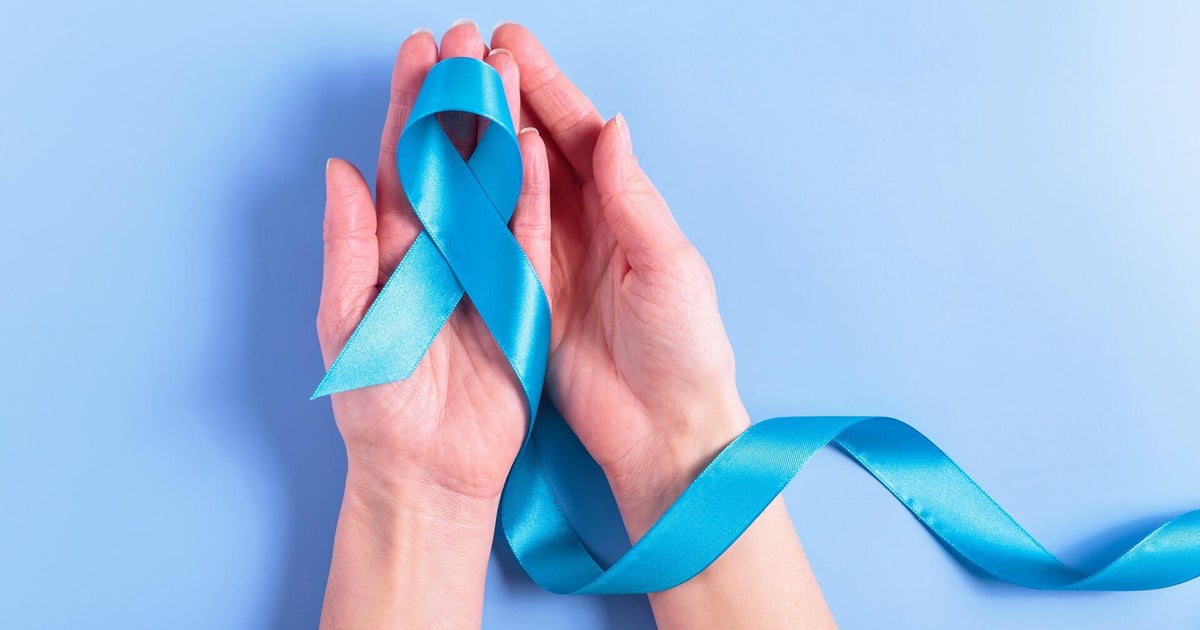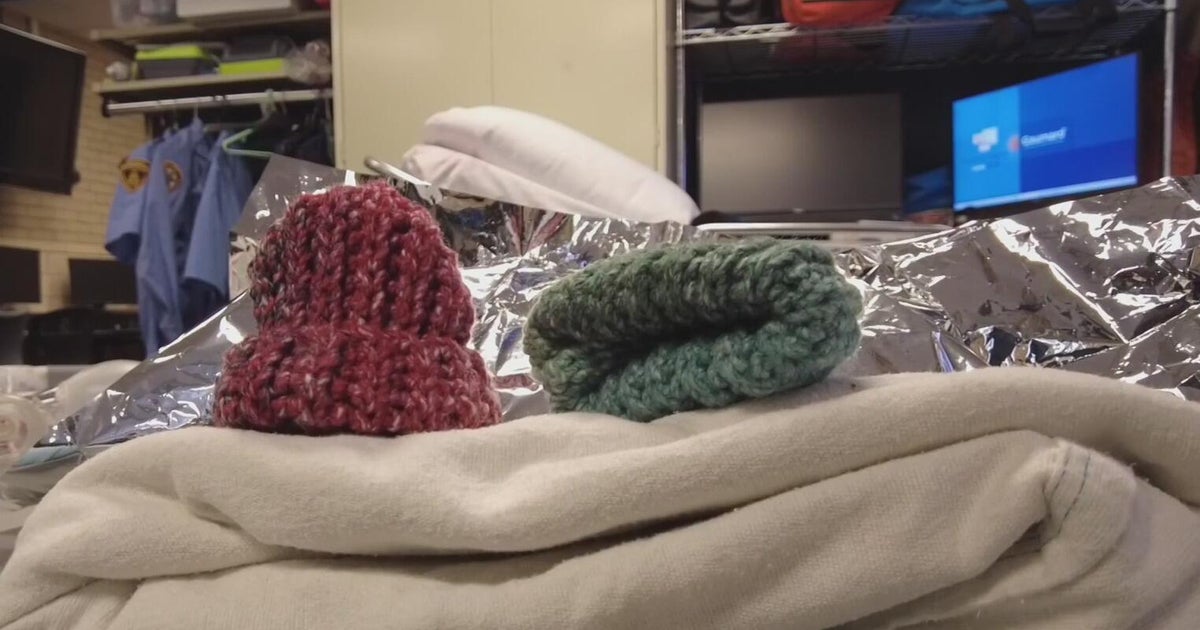"Our system is not built to serve everyone equally": Doctors push for an end to racial discrimination in health care
Malaika Pedzayi-Ferguson's kidney stones put her in the emergency room twice. She said a doctor laughed, shrugged and said "it's a mystery," before sending her home with Tylenol.
Jada's IUD fell out of its place, causing her severe pain and risked puncturing her uterus. She said doctors in two different emergency rooms refused to remove it, gave her ibuprofen and told her to see her primary physician. Because Jada was on vacation, that wasn't possible, she said — so she had to remove it herself.
When her twin sister Jayla asked a doctor for an STD test, she said the doctor tested for a yeast infection without telling her, and said the STD test was negative. It turned out that she did have an STD, and because it went untreated, she said she developed Pelvic Inflammatory Disease. The doctor who misdiagnosed Jayla said she should have had safe sex.
"I have to be the angry loud Black woman making a scene for you to do something. I used to want to avoid that, but when it comes down to my health, I'd rather you be uncomfortable and me not be dead," Jayla told CBS News. "...Who am I supposed to turn to, because I don't have the power to treat myself?"
These patients aren't alone. Thousands of people of color have shared their own accounts on social media of doctors dismissing pain or making racist remarks, or of having near-death experiences because physicians did not give proper treatment.
Now, with the ongoing protests against racial injustice, medical students and health care workers are pushing for change. Thousands have shown support for the #WhiteCoatsForBlackLives movement, demanding medical centers, schools, and individuals recognize and take action to address the health disparities Black people face.
Emergency room doctor Leigh-Ann Webb, an assistant professor of emergency medicine at the University of Virginia, said fair and efficient health care has always been a problem for Black people in the U.S.
"Our system in America is not built to serve everyone equally, and the health care system is not immune to that," she told CBS News.
Most recently, doctors said, they've found biases in how Black patients have been treated during the coronavirus pandemic.
Black people make up 13% of the U.S. population, but account for at least 23% of coronavirus deaths, according to the COVID Tracking Project. That prompted Webb and her colleagues to conduct a study that asked: When patients arrive at the emergency room, who was being tested for COVID-19?
"What we found was that we were disproportionately ordering more tests for people who were White, despite the fact that it was the people of color who are disproportionately affected across our country," Webb said. "Of the tests that we were ordering for people of color, those were coming back positive at a higher rate."
Coronavirus tests are just one example of how Black people often fare worse under the current health care system.
Black people are significantly more likely than White people to suffer from chronic health conditions like diabetes and asthma, according to the CDC. They also have the highest mortality rate for all cancers compared to any other racial group, and an infant mortality rate that's nearly twice the national average.
Research has also found that Black women are 42% more likely to die of breast cancer than White women, and that Black individuals are at higher risk of both developing and dying from colon cancer. Black men are more than 1.5 times more likely to get prostate cancer, according to the Centers for Disease Control and Prevention, while both Black men and women are more than twice as likely to develop myeloma, cancer of plasma cells.
Black women are also roughly three times more likely than White women to die during childbirth, according to the CDC.
Internal medicine and public health doctor Michelle Morse, an assistant professor at Harvard University, said she saw that dynamic at Brigham and Women's Hospital in Boston.
She said that around 2016, the hospital noticed a pattern in their emergency room that spanned at least a decade: Black and Latinx patients coming in for heart failure were more often admitted for treatment by general medicine providers than cardiology specialists. White patients, comparatively, were frequently treated by specialists who could provide better care.
Heart failure patients who saw general providers, Morse explained, had a higher hospital readmission rate than those treated by specialists.
"Often what happens is that Black and Brown patients get blamed for their outcomes not being as good as White folks," Morse said. "So it again reinforces the fact that a lot of the racial inequities...are actually about the social conditions and the policies, not about the behavior, or compliance with medications, or biology, or genes, or DNA of Black and Latinx patients."
Since the study, Morse said the hospital developed a program called Adaptive Leaders for Racial Justice that teaches clinicians about antiracism and clinical medicine. They have also launched research to find out what drives triage decisions, and to find ways to improve the quality of heart failure care.
"We hope other institutions and clinicians will be equally committed to addressing inequities in their own contexts, systems, and care settings," Dr. Eldrin Lewis, director of the Cardiovascular Clerkship Program at Brigham and Women's Hospital, said in a press release. "Ongoing institutional insistence on self-critique and recognition of the pervasiveness of structural racism and bias will increase the likelihood of success in achieving health equity at all U.S. institutions."
Webb explained that while many doctors tend to scold Black patients for inadequate health care, systemic issues are largely to blame.
Economic inequality is part of that. Black people living in many major U.S. cities earn at least $30,000 less than their White counterparts, and are significantly more likely to be unemployed, live in poverty, and not own a home; according to the CDC, they are also less likely to be able to afford medical care.
Black patients tend to go to the worst hospitals in the country, where patients are more likely to die from heart attacks or pneumonia, a 2011 study found.
"Those years of not having care or not having access to medications or having insurance so that you can have a primary care doctor or, on a basic level, not having access to healthy foods or clean water, we see the manifestation of that in the emergency department," Webb said. "And it's devastating to watch."
A 2018 study suggested that these disparities are at least partially linked to doctors believing that Black patients are less likely to improve or adhere to recommended treatments. Doctors also tend to believe Black patients are less responsible for their health, the study found. This belief, the study said, affects what treatments doctors provide.
Jessica Simpson, who is Black, is a second-year medical student at Loyola University Chicago. She said she deals with this kind of racism daily interacting with non-Black medical students, and the school itself. She said implicit biases, such as discounting a patient's pain, are judgments and assumptions many people, including med students, don't realize they have.
"By nature, we develop social biases as a byproduct of just the normal function of our brains," she said. "It's easier for our brains to label people, places, things, experiences, just because we have we live in a complex world ... so social biases create this lens that we have, for what we notice, and how we interpret the world."
Simpson said many of these biases begin in medical school. She explained medical schools do not thoroughly teach the history and context of race in medicine, and said there is a lack of diversity to help facilitate the conversation.
Black students tend to make up a small portion of medical school classes. In 2018-2019, just 1,238 out of the more than 19,900 med school graduates were Black, according to the Association of American Medical Colleges.
This, Simpson said, can impact the types of questions physicians ask their patients and the treatment they provide.
In a 2016 study, researchers found many doctors and med students believe there are biological differences between Black and White people, and that Black people are not as sensitive to pain as their White counterparts. Because of this, the study said, Black people often receive inadequate pain treatment.
"It's difficult that we're still having to talk about this," Simpson said, "but I also have hope."
Simpson started a chapter of the national organization White Coats for Black Lives at her school after the murder of George Floyd, and said addressing and being aware of racial inequalities — both in health care and beyond — is "imperative" for future physicians.
"We can no longer afford to be silent regarding matters of oppression," she told CBS News. "It's our responsibility to learn about that and to learn about our own implicit biases in order to provide the same compassionate, patient-centered care to all of our patients, regardless of their race and ethnicity."
Dr. Cameron Webb, University of Virginia Director of Health Policy and Equity and Leigh-Ann's husband, told CBS News that to change discriminatory outcomes, health care has to reprioritize and incentivize doctors to focus on quality care, not quantity care. Webb, the Democratic candidate in Virginia's 5th Congressional district, would be the first Black physician elected to Congress if he wins in November.
"Right now, it's very fee-for-service — you just do more things, you get more money," he said, adding that value-based contracts would ensure patients receive better quality and more affordable care. "It really moves hospitals into thinking holistically about what makes patients sick, and invest a smart investment and making communities that are designed for people to be healthier. This kind of redesign disproportionately will benefit minority and lower-income communities."
"There's that old quote from Dr. Martin Luther King, that 'of all the forms of inequality, injustice in health care is the most shocking and inhumane,'" Webb said. "This is one of those moments when we're trying to root out injustice...this is the moment to lean into that work, and to recognize this is what it looks like to make a better nation."
Black individuals who have experienced racial bias and discrimination in health care say without more everyday action, the movement is "like a Band-Aid."
"It soothes the soul, but my wound is still very much open," Jada said. "It's like you just pat me on the back and it's like I'm here for you with your cut, but you're not actively healing the cut."
Malaika Pedzayi-Ferguson said that for White doctors, and White people in general, "the problem starts when the activism stops with your sign that you posted, when you're not addressing the ways you contribute to these systems."
"It's good to address the bare minimum of, yes, Black lives matter," Pedzayi-Ferguson said. "If that's where we're starting with people in the medical field then they need to start addressing, are they treating these Black lives like they matter?"





